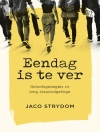Five hundred years ago, Martin Luther's Ninety-Five Theses caught Europe by storm and initiated the Reformation, which fundamentally transformed both the church and society. Yet by Luther's own estimation, his translation of the Bible into German was his crowning achievement. The Bible played an absolutely vital role in the lives, theology, and practice of the Protestant Reformers. In addition, the proliferation and diffusion of vernacular Bibles—grounded in the original languages, enabled by advancements in printing, and lauded by the theological principles of sola Scriptura and the priesthood of all believers—contributed to an ever-widening circle of Bible readers and listeners among the people they served. This collection of essays from the 2016 Wheaton Theology Conference—the 25th anniversary of the conference—brings together the reflections of church historians and theologians on the nature of the Bible as ‘the people's book.’ With care and insight, they explore the complex role of the Bible in the Reformation by considering matters of access, readership, and authority, as well as the Bible's place in the worship context, issues of theological interpretation, and the role of Scripture in creating both division and unity within Christianity. On the 500th anniversary of this significant event in the life of the church, these essays point not only to the crucial role of the Bible during the Reformation era but also its ongoing importance as ‘the people's book’ today.
قائمة المحتويات
Introduction: ‘That Most Precious Jewel’
Jennifer Powell Mc Nutt and David Lauber
Part I: Access and Readership
1. Teaching the Church: Protestant Latin Bibles and Their Readers
Bruce Gordon
2. Scripture, the Priesthood of All Believers, and Applications of 1 Corinthians 14
G. Sujin Pak
3. Learning to Read Scripture for Ourselves: The Guidance of Erasmus, Luther, and Calvin
Randall Zachman
4. The Reformation and Vernacular Culture: Wales as a Case Study
D. Densil Morgan
Part II: Transmission and Worship
5. The Reformation as Media Event
Read Mercer Schuchardt
6. The Interplay of Catechesis and Liturgy in the Sixteenth Century: Examples from the Lutheran and Reformed Traditions
John D. Witvliet
7. Word and Sacrament: The Gordian Knot of Reformation Worship
Jennifer Powell Mc Nutt
Part III: Protestant-Catholic Dialogue
8. John Calvin’s Commentary on the Council of Trent
Michael Horton
9. The Bible and the Italian Reformation
Christopher Castaldo
10. Reading the Reformers After Newman
Carl Trueman
Part IV: The People’s Book Yesterday and Today
11. From the Spirit to the Sovereign to Sapiential Reason: A Brief History of Sola Scriptura
Paul C. H. Lim
12. Perspicuity and the People’s Book
Mark Labberton
List of Contributors
عن المؤلف
David Lauber (Ph.D., Princeton Theological Seminary) is associate professor of theology at Wheaton College in Wheaton, Illinois. He is author of Barth on the Descent into Hell.












